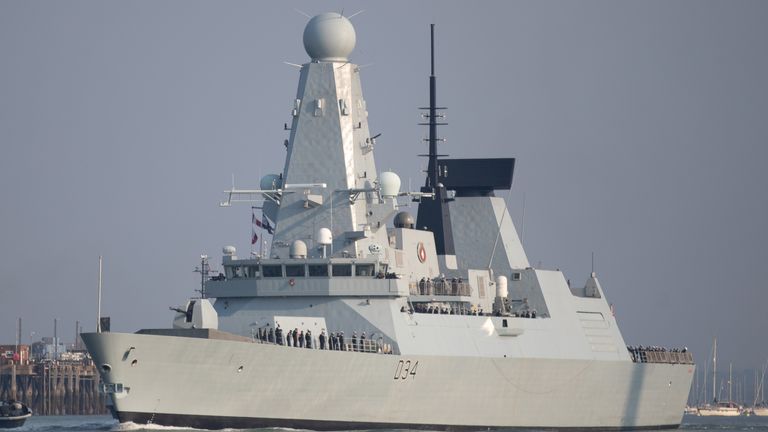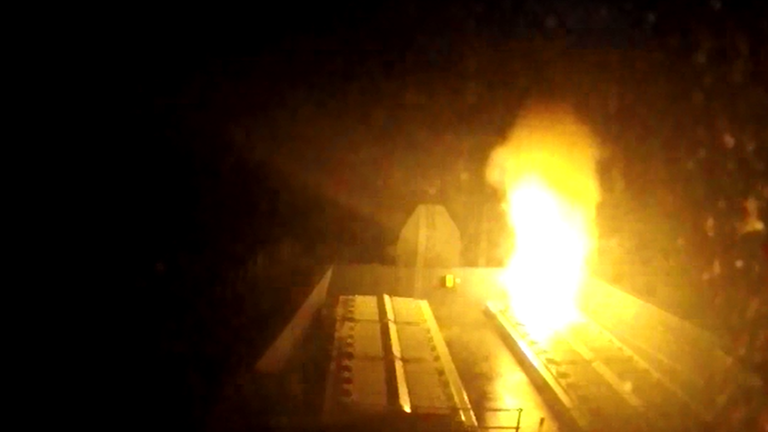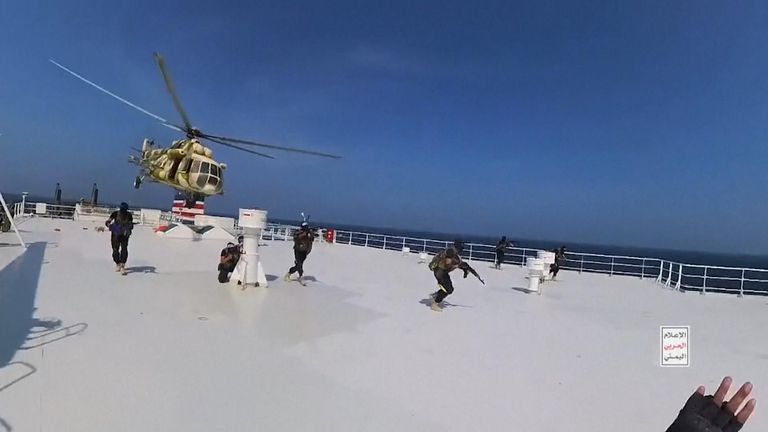
The UK is to join a new US-led multi-national naval force to fend off attacks in the Red Sea from fighters allied to Hamas.
US defence secretary Lloyd Austin announced the creation of the multi-national operation.
US ships will join with vessels from the UK, Bahrain, Canada, France, Italy, Netherlands, Norway, the Seychelles, and Spain.
“This is an international challenge that demands collective action. Therefore today I am announcing the establishment
of Operation Prosperity Guardian, an important new multi-national security initiative,” Mr Austin said.
It comes after a growing number of companies, including BP, have paused shipments through the waters after recent assaults on vessels by Houthi rebels.
The oil giant revealed on Monday that it had temporarily stopped its shipping operations via the Suez Canal.
“The safety and security of our people and those working on our behalf is BP’s priority,” the company said.
“In light of the deteriorating security situation for shipping in the Red Sea, BP has decided to temporarily pause all transits through the Red Sea.”
Follow war latest:
British ship among those attacked
BP followed in the footsteps of shipping giants Maersk, Swiss-based MSC and French group CMA CGM in avoiding the area.
Hapag-Lloyd, which had seen one of its ships targeted last week, said also joined them on Monday evening, telling Sky News: “For the time being, we are routing ships around the Cape of Good Hope”.
The company called for an international coalition to protect shipping.
Evergreen announced that it had temporarily suspended import and export services in Israel until further notice, citing the security risk, in addition to halting journeys via the Suez Canal.
“We ask for your understanding under these serious circumstances”, the container ship firm told its clients.
Operations through the canal started to be paused on Friday following attacks on vessels in the Red Sea by Iran-backed Houthi militants in Yemen.
The group, which supports Hamas in its war with Israel, has vowed to target vessels which it believes are heading to and from Israel.
It emerged on Saturday that Royal Navy warship HMS Diamond, sent to the region two weeks ago, had shot down a drone in the Red Sea that was deemed a threat.
The Houthis have launched a series of attacks on vessels in the Red Sea, as well as launching drones and missiles targeting Israel.
Earlier this month, three commercial ships were struck by ballistic missiles and a US warship shot down a further three drones.
The US said on Monday evening that a coalition was being built to address the Houthi threat and talks among naval partners were due to be held on Tuesday.
There is intense pressure to guarantee security as the Suez Canal is a key route for global trade, particularly for the transport of oil, grain and consumer goods from east Asia.
Journeys via the Cape of Good Hope instead typically add about 3,000 miles.
That can take up to an additional 14 days.
The prospect of longer journeys to complete deliveries is raising transit costs, albeit from record low levels, and boosting the share prices of listed shipping firms as a result.
The disruption has also been blamed for a rise in global oil prices, with Brent crude oil up by more than 2.5% on Monday.
Simon Heaney, senior manager of container research for the consultancy Drewry, said: “Virtually all services will have to make this rerouting.”
“The impact will be longer transit times, more fuel spent, more ships required, potential disruption and delays – at least in the first arrivals in Europe,” he added, noting that ships could arrive from their longer journeys to ports “in clumps”.
Some companies had planned to reroute to the Red Sea to avoid delays at the Panama Canal caused by a lack of rainfall.
“It’s unprecedented that the two have coincided,” Mr Heaney said, adding that neither the Suez nor Panama canals were closed but just “less viable for the short term”.



